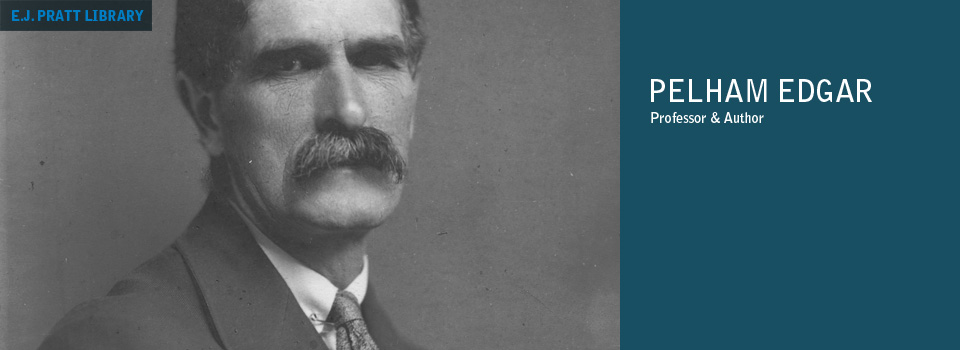Material relating to Charles G. D. Roberts
13 photographs: b&w
Charles George Douglas Roberts (1860–1943) was a poet and writer. He was born in Douglas, New Brunswick, the son of George Goodridge Roberts and Emma Wetmore Bliss. He was the brother of Theodore Goodrigde Roberts and cousin of Bliss Carman. He married Mary Isabel Fenety in 1880. They had three sons and a daughter. He married Joan Montgomery in 1943. He died in Toronto, Ontario.
Roberts was educated at Collegiate Grammar School in Fredericton. He attended the University of New Brunswick, where he received a B.A. in 1879 and an M.A. in 1881. He was Headmaster of the Grammar School in Chatham, New Brunswick (1879–82) and of York Street School in Fredericton (1882–83). He was editor of Goldwin Smith’s journal, The Week (1883–84). He was appointed Professor of English and French, and later of Economics at King’s College, Windsor, Nova Scotia (1885–95). In 1890 he was elected to the Royal Society of Canada. In 1897, Roberts went to live with Bliss Carman in New York City, where he worked as a freelance writer and was associate editor of the Illustrated American (1897–98). He moved to Europe in 1907 and to England in 1911. In 1914 he enlisted in the British Army as a private, and later served with Canadian forces. He returned to Canada in 1917 and lived for many years in Toronto.
Roberts was elected a Fellow of the Royal Society of Canada in 1890. He was a member of the Royal Society of Literature and of the American Academy of Arts and Letters. He was the first to be awarded the Lorne Pierce Medal in 1926 and was knighted in 1935. Along with Ernest Thompson Seton, he is known as the inventor of the modern animal story, particularly in books such as Kindred of the Wild: A Book of Animal Life (1902). His publications include: Orion and Other Poems (1880), A Sister to Evangeline (1898), The Watchers of the Trails (1904), and The Vagrant of Time (1927).
 Ask Us
Ask Us